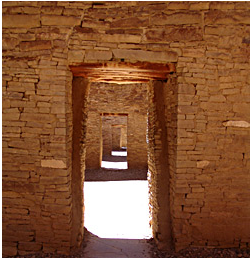Publication Date
5-22-2001
Abstract
This dissertation addresses questions of knowledge, identity, scientific activity and social reproduction among nuclear weapons experts at the Los Alamos National Laboratory. Throughout the Cold War, the laboratory's weapons community produced an enormous body of knowledge about nuclear weapons through engaging iteratively in an experimental cycle that consisted of designing, building and testing experimental nuclear explosives. This design and test cycle also fulfilled critical social functions. providing a site for the reproduction of skills and understandings in novice weaponeers as well as an engine for the ongoing integration of the many "ways of knowing" that existed in the laboratory. However, Congressional legislation halted the design and test cycle in 1992, and since that time, the laboratory has neither designed new nuclear devices nor tested any existing ones. Without the design and test cycle. senior weapons experts frequently express concern that the laboratory is on the verge of losing critical skills, understandings and abilities necessary to make judgments about the state of the stockpile.
This dissertation explores the "knowledge loss'' problem at Los Alamos, drawing on two and a half years of ethnographic fieldwork, including interviews, participant observation, and archival research conducted among weapons experts between August of 1997 and April of 2000. I explore learning as social process that takes place through engagement with other people, and with various aspects of the physical world, within locally meaningful settings -- in this case, a nuclear weapons laboratory. In doing so, I argue that learning must be understood as a process of identity formation through which unknowing, unschooled novices gradually come to understand themselves as contributing, knowing members of a particular community of practice -- in this case, nuclear weapons experts. With this comes for more than just a set of weapons-related skills. As people engage in the laboratory's activities, they come to understand their work as meaningful in relation to larger moral, social. and political bodies of knowledge -- about the moral rightness of nuclear deterrence to prevent war, for example, or the social and political position of the United States vis-a-vis other nations. In that sense, the activity settings through which people learn how to move fluently through the world of weaponeering -- in security training sessions, in working with high explosive assemblies, as novice weapon designers -- are properly understood as the mechanisms through which the larger weapons community and its many interrelated ways of knowing about weapons -- technical, moral, social, political -- are reproduced.
Project Sponsors
The Los Alamos Historical Society
Document Type
Dissertation
Language
English
Degree Name
Anthropology
Level of Degree
Doctoral
Department Name
Anthropology
First Committee Member (Chair)
Marta Weigle
Second Committee Member
Sylvia Rodriguez
Third Committee Member
Louise A. Lamphere
Fourth Committee Member
Ruth Salvaggio
Recommended Citation
McNamara, Laura Agnes. "Ways of Knowing About Weapons: The Cold War's End at the Los Alamos National Laboratory." (2001). https://digitalrepository.unm.edu/anth_etds/179

